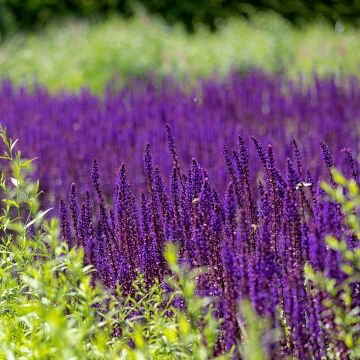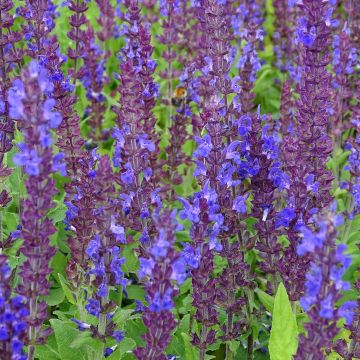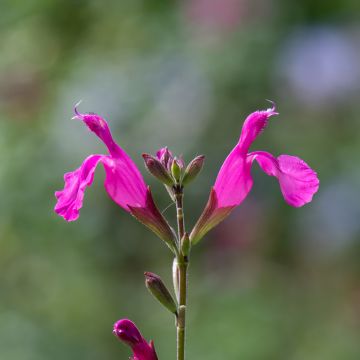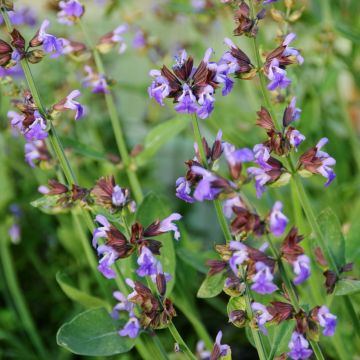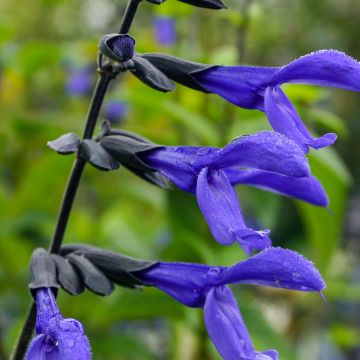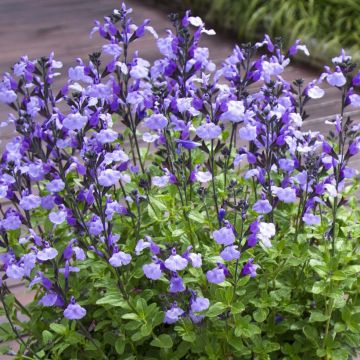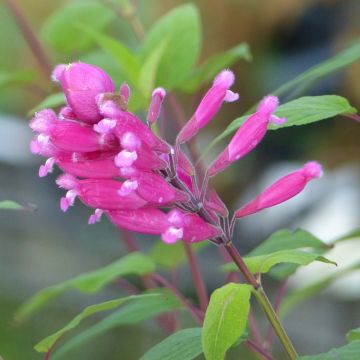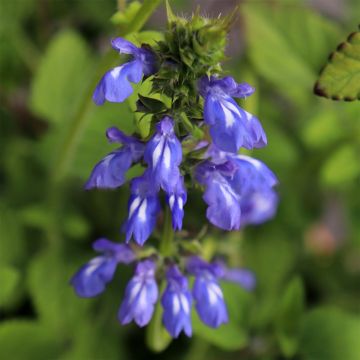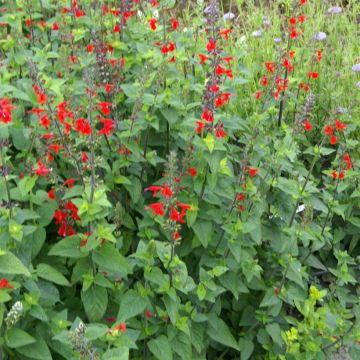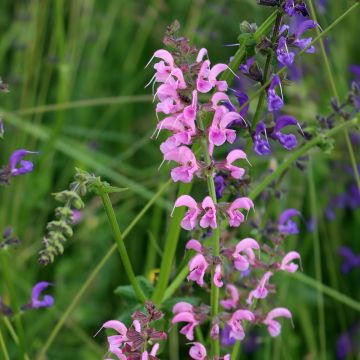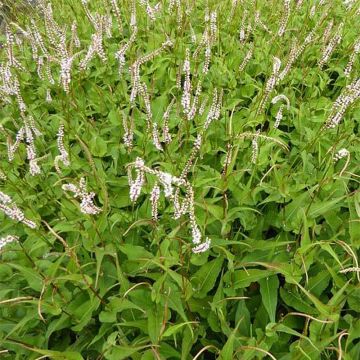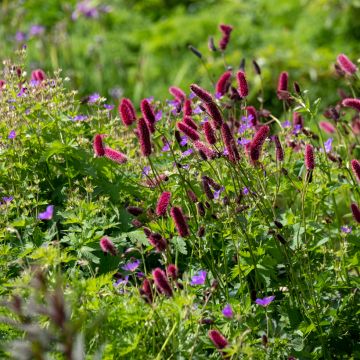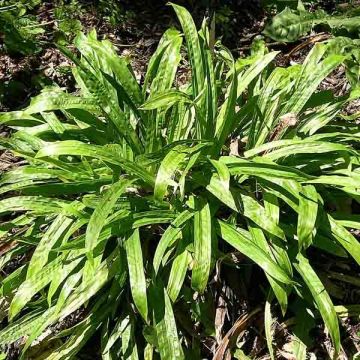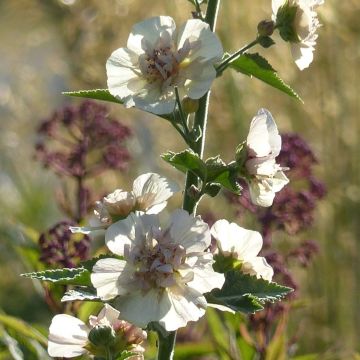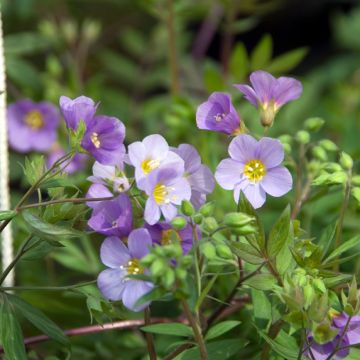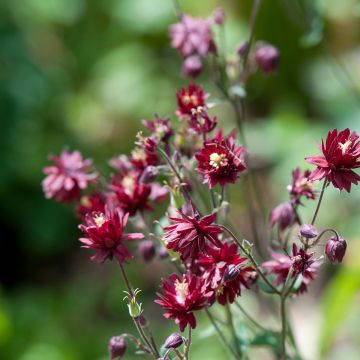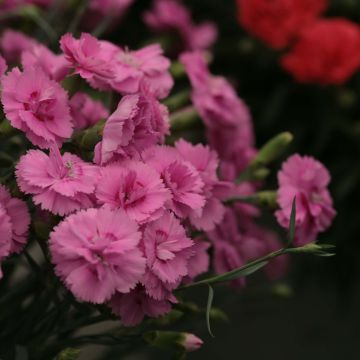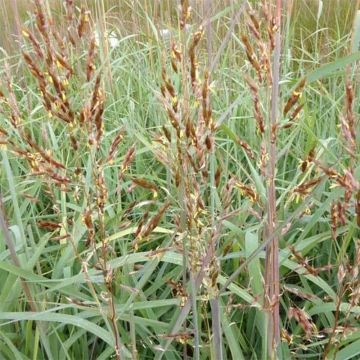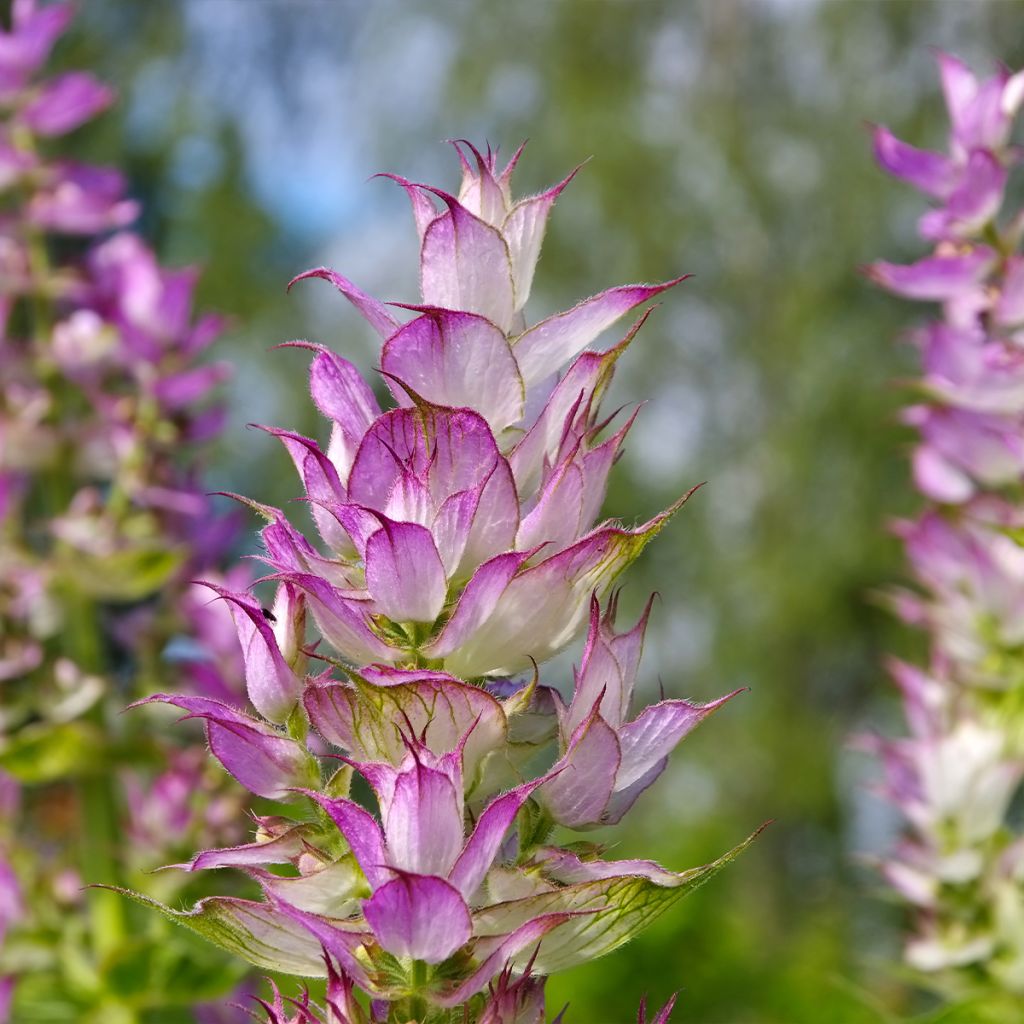

Sauge sclarée - Salvia sclarea
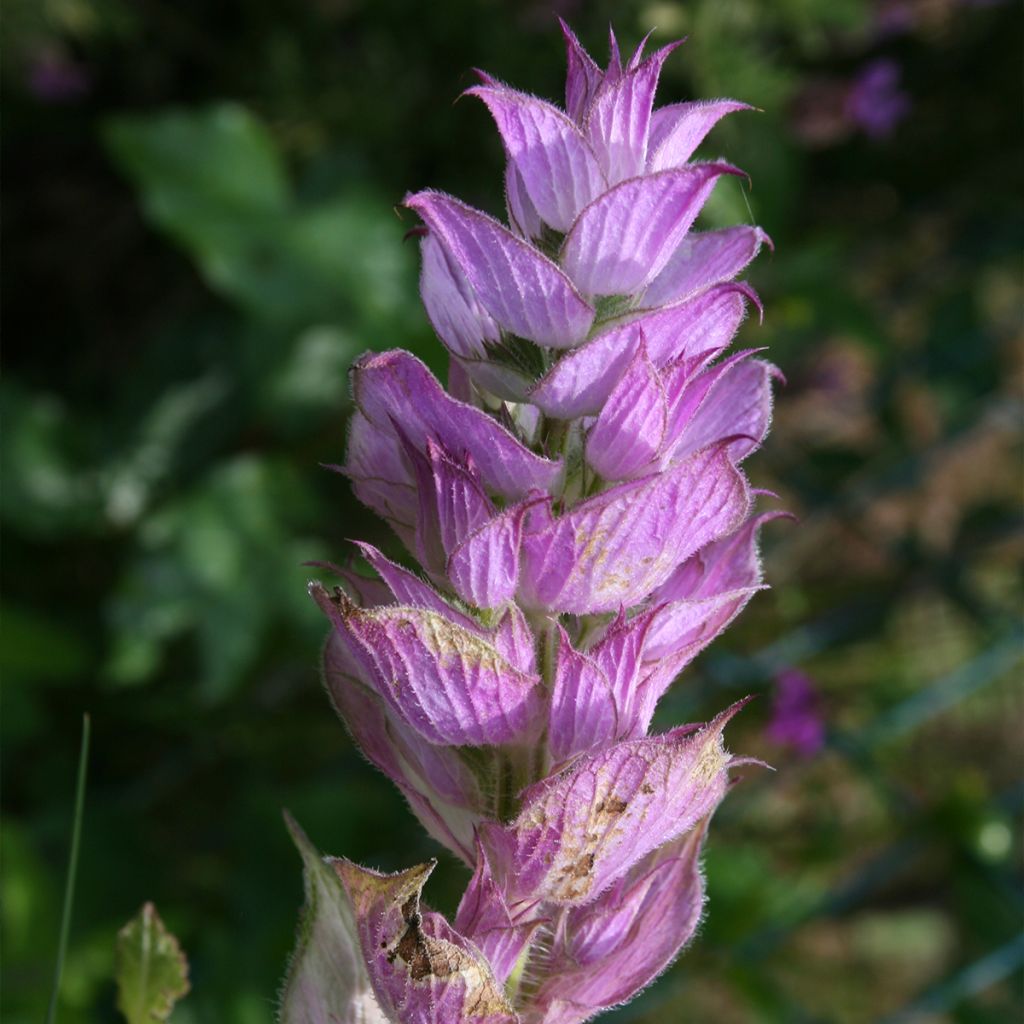

Sauge sclarée - Salvia sclarea
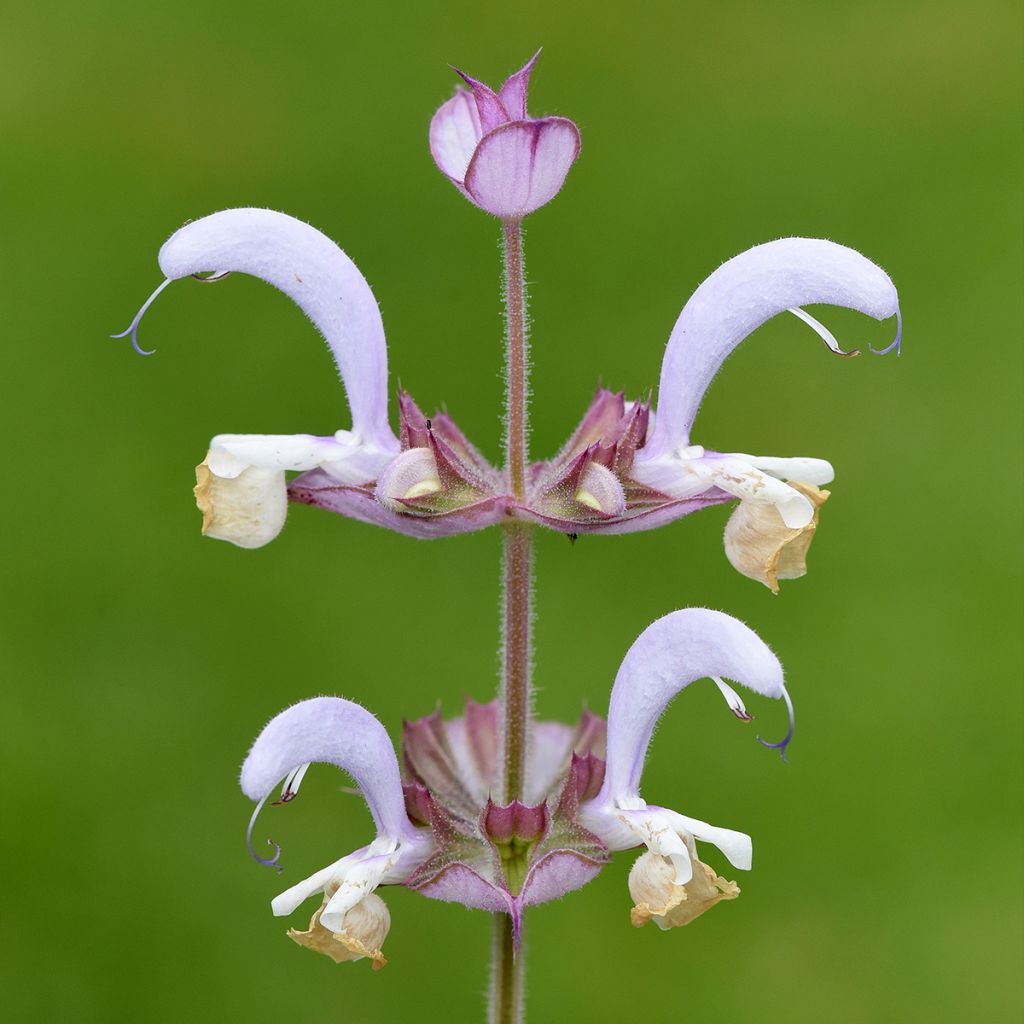

Sauge sclarée - Salvia sclarea
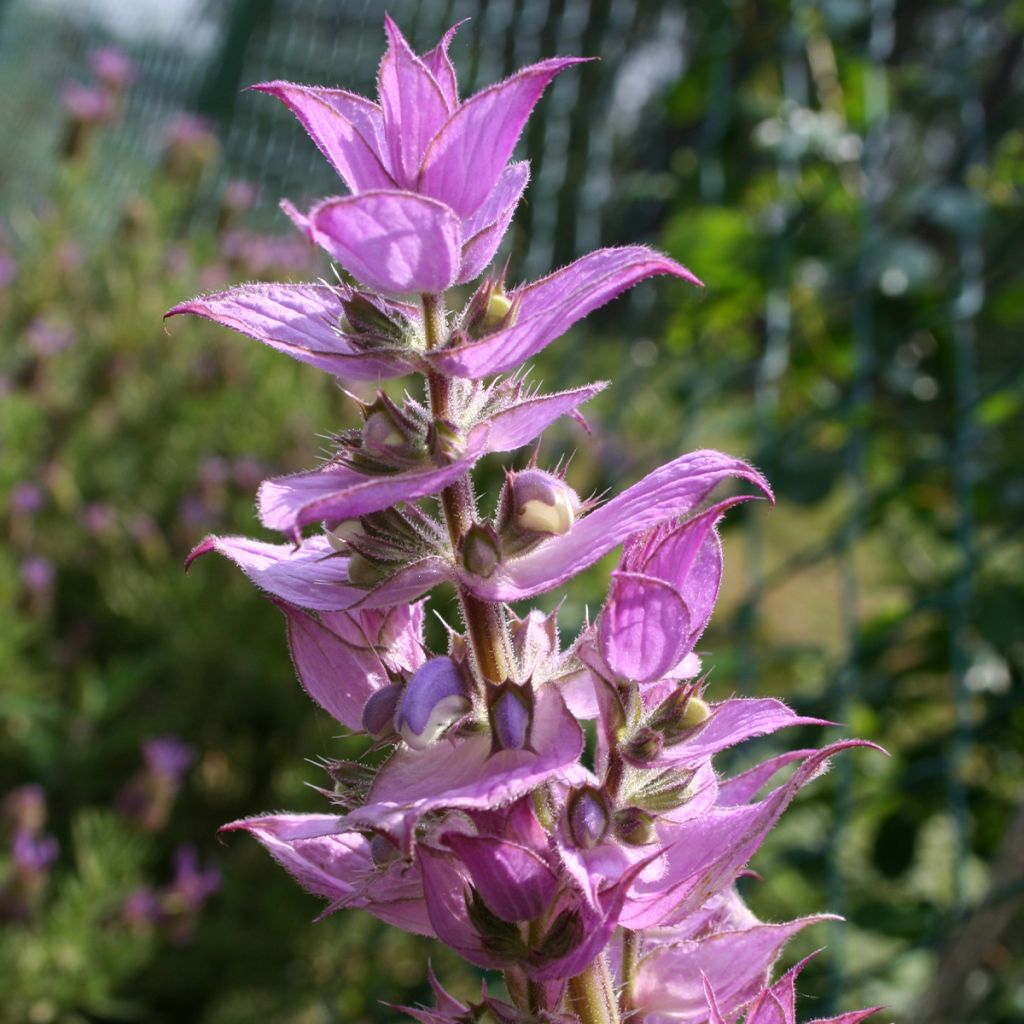

Sauge sclarée - Salvia sclarea
Salvia sclarea
Salvia sclarea
Turkestan Clary, Clary sage, Clear eye, Eyebright, Clary wort, See-bright
She's growing slowly but hasn't wilted yet, we'll see how it goes.
Sylvie, 15/09/2025
Special offer!
Receive a €20 voucher for any order over €90 (excluding delivery costs, credit notes, and plastic-free options)!
1- Add your favorite plants to your cart.
2- Once you have reached €90, confirm your order (you can even choose the delivery date!).
3- As soon as your order is shipped, you will receive an email containing your voucher code, valid for 3 months (90 days).
Your voucher is unique and can only be used once, for any order with a minimum value of €20, excluding delivery costs.
Can be combined with other current offers, non-divisible and non-refundable.
Home or relay delivery (depending on size and destination)
Schedule delivery date,
and select date in basket
This plant carries a 12 months recovery warranty
More information
We guarantee the quality of our plants for a full growing cycle, and will replace at our expense any plant that fails to recover under normal climatic and planting conditions.

Would this plant suit my garden?
Set up your Plantfit profile →
Description
Salvia sclarea, commonly known as clary sage, is a large and beautiful plant that is often a biennial and will charm enthusiasts of well-kept, wild, and natural gardens. Robust and low-maintenance, this highly aromatic sage is decorative with large panicles of flowers in shades of pink and pastel blue, and its velvety foliage of a very soft grey-green. It is also a first-rate honey plant and medicinal plant, self-seeding wherever it pleases, filling in empty spaces in flower beds or rockeries.
Clary sage belongs to the Lamiaceae family. This botanical species is native to western Asia, southern and central Europe, and is cultivated or naturalised in many regions of Europe and America. It is grown for its ornamental appearance, and for extracting its essential oil used in aromatherapy and perfumery. A short-lived perennial plant, it is not uncommon for it to exhaust itself as early as its second year of flowering and seed production. Salvia sclarea is a very fast-growing plant. In its first year, it only produces foliage, and then it flowers from the second year onwards. The foliage is often evergreen in winter. It is composed of large, hairy, and rough leaves, with a long triangular shape, 15 to 25cm (6 to 10in) long, with toothed edges. The leaves are a fairly light grey-green colour and are highly aromatic, leaving a sticky and fragrant substance on the fingers. The plant eventually forms an upright clump that can easily reach 1m (3ft) in height when flowering. Flowering occurs from June to August. It takes the form of long pyramidal spikes composed of many flowers, 2 to 3cm (1in) long, grouped in small clusters. Each cluster, called a whorl, is supported by 2 bracts, which are initially pale-pink veined with mauve, turning to whitish veined with green. The flower consists of a white lower lip and a pale-blue to lilac-pink upper lip. These flowers emit a powerful fragrance and are popular with bees.
Once well-established, Salvia sclarea can survive harsh winters (-20°C (-4°F)) and dry summers. It looks elegant when isolated, with the slightly unreal spectacle of its large pastel panicles capturing the eye. In warm and dry climates, it can live for several years and become imposing, reaching up to 1.5m (5ft) in height. It looks beautiful in flower beds, alongside rose bushes, deutzia, red-hot pokers, creeping junipers, sages, cotton lavenders, and many others.
Report an error about the product description
Salvia sclarea in pictures
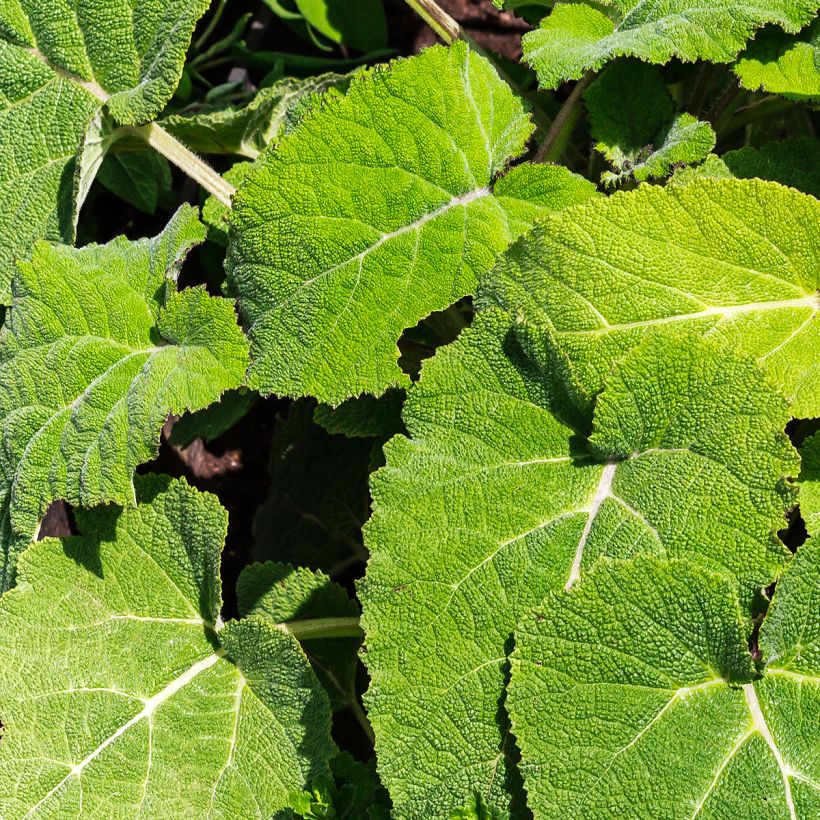

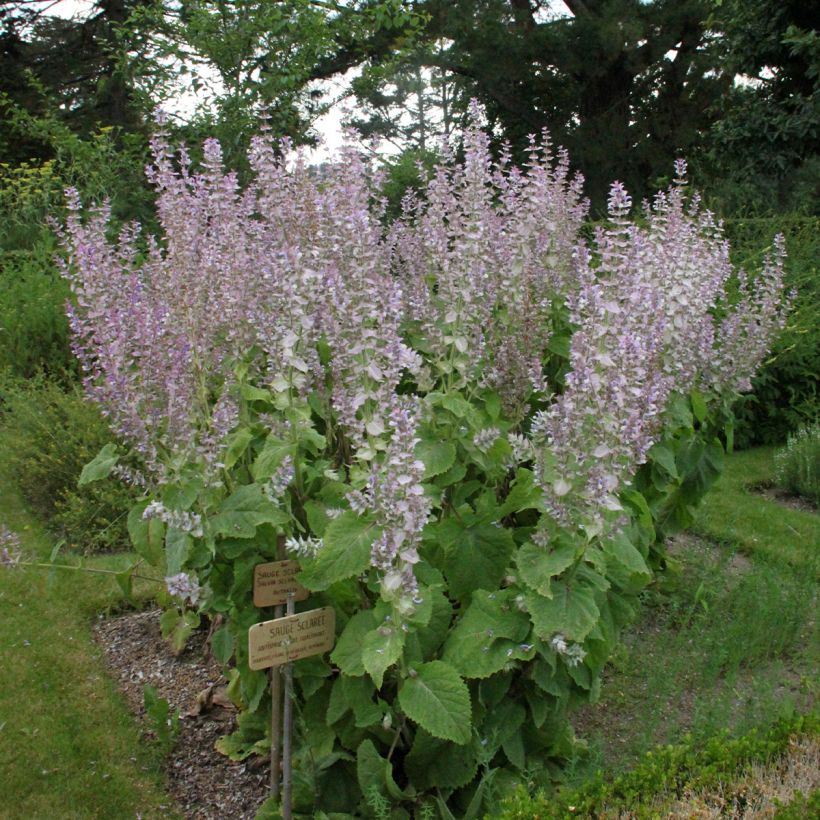

Flowering
Foliage
Plant habit
Botanical data
Salvia
sclarea
Lamiaceae
Turkestan Clary, Clary sage, Clear eye, Eyebright, Clary wort, See-bright
West Asia
Other Salvia - Sage
View all →Planting and care
Salvia sclarea prefers full sun, but can also tolerate partial shade in sunny and hot climates. Place it sheltered from cold and drying winds in loose, well-drained, preferably limestone soil, that is dry in summer. Space the young plants 50cm (20in) apart, as it does not like root competition. It is sensitive to excessive winter humidity, which can cause root and stem rot. Once well-rooted, it does not require a large amount of water, so limit watering. Choose its location carefully and avoid moving it. After flowering, prune the plant by cutting it back to about 20cm (8in) from the ground to promote new shoots the following year. Leave the faded flower spikes if you want to obtain new plants, as it will self-seed abundantly.
Planting period
Intended location
Care
-
, onOrder confirmed
Reply from on Promesse de fleurs
Similar products
Haven't found what you were looking for?
Hardiness is the lowest winter temperature a plant can endure without suffering serious damage or even dying. However, hardiness is affected by location (a sheltered area, such as a patio), protection (winter cover) and soil type (hardiness is improved by well-drained soil).

Photo Sharing Terms & Conditions
In order to encourage gardeners to interact and share their experiences, Promesse de fleurs offers various media enabling content to be uploaded onto its Site - in particular via the ‘Photo sharing’ module.
The User agrees to refrain from:
- Posting any content that is illegal, prejudicial, insulting, racist, inciteful to hatred, revisionist, contrary to public decency, that infringes on privacy or on the privacy rights of third parties, in particular the publicity rights of persons and goods, intellectual property rights, or the right to privacy.
- Submitting content on behalf of a third party;
- Impersonate the identity of a third party and/or publish any personal information about a third party;
In general, the User undertakes to refrain from any unethical behaviour.
All Content (in particular text, comments, files, images, photos, videos, creative works, etc.), which may be subject to property or intellectual property rights, image or other private rights, shall remain the property of the User, subject to the limited rights granted by the terms of the licence granted by Promesse de fleurs as stated below. Users are at liberty to publish or not to publish such Content on the Site, notably via the ‘Photo Sharing’ facility, and accept that this Content shall be made public and freely accessible, notably on the Internet.
Users further acknowledge, undertake to have ,and guarantee that they hold all necessary rights and permissions to publish such material on the Site, in particular with regard to the legislation in force pertaining to any privacy, property, intellectual property, image, or contractual rights, or rights of any other nature. By publishing such Content on the Site, Users acknowledge accepting full liability as publishers of the Content within the meaning of the law, and grant Promesse de fleurs, free of charge, an inclusive, worldwide licence for the said Content for the entire duration of its publication, including all reproduction, representation, up/downloading, displaying, performing, transmission, and storage rights.
Users also grant permission for their name to be linked to the Content and accept that this link may not always be made available.
By engaging in posting material, Users consent to their Content becoming automatically accessible on the Internet, in particular on other sites and/or blogs and/or web pages of the Promesse de fleurs site, including in particular social pages and the Promesse de fleurs catalogue.
Users may secure the removal of entrusted content free of charge by issuing a simple request via our contact form.
The flowering period indicated on our website applies to countries and regions located in USDA zone 8 (France, the United Kingdom, Ireland, the Netherlands, etc.)
It will vary according to where you live:
- In zones 9 to 10 (Italy, Spain, Greece, etc.), flowering will occur about 2 to 4 weeks earlier.
- In zones 6 to 7 (Germany, Poland, Slovenia, and lower mountainous regions), flowering will be delayed by 2 to 3 weeks.
- In zone 5 (Central Europe, Scandinavia), blooming will be delayed by 3 to 5 weeks.
In temperate climates, pruning of spring-flowering shrubs (forsythia, spireas, etc.) should be done just after flowering.
Pruning of summer-flowering shrubs (Indian Lilac, Perovskia, etc.) can be done in winter or spring.
In cold regions as well as with frost-sensitive plants, avoid pruning too early when severe frosts may still occur.
The planting period indicated on our website applies to countries and regions located in USDA zone 8 (France, United Kingdom, Ireland, Netherlands).
It will vary according to where you live:
- In Mediterranean zones (Marseille, Madrid, Milan, etc.), autumn and winter are the best planting periods.
- In continental zones (Strasbourg, Munich, Vienna, etc.), delay planting by 2 to 3 weeks in spring and bring it forward by 2 to 4 weeks in autumn.
- In mountainous regions (the Alps, Pyrenees, Carpathians, etc.), it is best to plant in late spring (May-June) or late summer (August-September).
The harvesting period indicated on our website applies to countries and regions in USDA zone 8 (France, England, Ireland, the Netherlands).
In colder areas (Scandinavia, Poland, Austria...) fruit and vegetable harvests are likely to be delayed by 3-4 weeks.
In warmer areas (Italy, Spain, Greece, etc.), harvesting will probably take place earlier, depending on weather conditions.
The sowing periods indicated on our website apply to countries and regions within USDA Zone 8 (France, UK, Ireland, Netherlands).
In colder areas (Scandinavia, Poland, Austria...), delay any outdoor sowing by 3-4 weeks, or sow under glass.
In warmer climes (Italy, Spain, Greece, etc.), bring outdoor sowing forward by a few weeks.






























